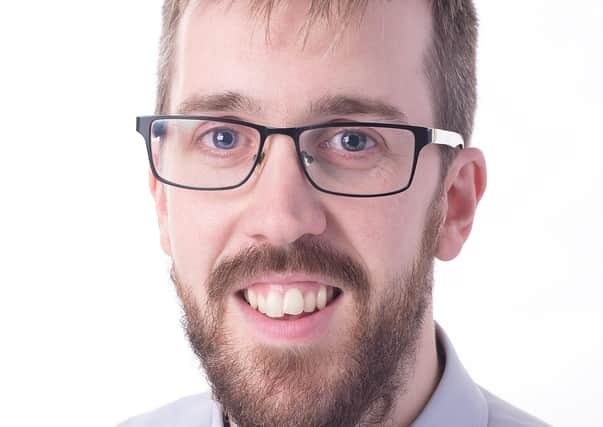Shielders must not become the forgotten few again – Andrew Strong


Emily Maitlis’s extraordinary introduction to BBC’s Newsnight programme on 8 April debunked the myth that the coronavirus was “a great leveller”. Highlighting the disproportionate impact on working class communities at the frontline of dealing with the consequences of the disease spreading across the country, Maitlis expertly skewered the notion that this pandemic was felt equally across the country.
Our work with members of the Health and Social Care Alliance Scotland (the ALLIANCE) over the last four months has highlighted the same issue. Covid-19 and the subsequent decisions have affected millions of people, but have had a greater impact on communities already worst affected by the austerity measures of the last decade, for example people with learning disabilities, women, black and minority ethnic people and unpaid carers.
Advertisement
Hide AdAdvertisement
Hide AdNow, while most of the population are facing up to the changing circumstances ahead of us – with shops, pubs, restaurants and businesses reopening, though not as we know them – it is important to remember that for one group these changes are riddled with anxiety and concern. For the 180,000 people across Scotland in the shielded group, lockdown has meant that they have spent four months permanently indoors – away from contact with the world outside their window.
This is a group of people varied in age, family circumstances and experiences. Some live with multiple long-term conditions or impairments which affected them significantly under the “old normal”, whilst others may have just moved to the area or the country without friends or family networks close by. Others have struggled to access the services that remained available because “moving online” is simply impossible.
Sheltering this group was a cruel but necessary measure to protect them from the worst excesses of an unforgiving virus – but its impact will continue to be felt well into the future. In a recent podcast recorded for our ALLIANCE Live feature, we heard from two people who have been shielding throughout Covid-19. They told us of the raised anxiety they lived through, the increased calls on support from their family they had to make, and the sacrifices which had been forced upon them. One contributor told us: “Shielders are still two or three steps behind. We just seem to be very much the forgotten people.”
At the ALLIANCE they have not been forgotten.
We have been working closely with many people who have been in the shielding group since lockdown began. For instance, in Glasgow our Community Links Worker project, based in GP practices across the city and supporting people to access place-based support in their communities, has been with people who are shielding from day one.
Our staff have been on hand to support GP practices to contact people on the practice shielding list. In many cases this has involved speaking to them to explain the guidance letter from the Chief Medical Officer and answering any questions or concerns they might have. These conversations have often led to local arrangements being made for easier food and prescriptions access where this was required and the arrangement of vital support such as telephone befriending and counselling.
This action required strong and innovative third sector organisations working in local communities, continuing to offer support even when the circumstances seemed to prohibit it. But despite the mammoth efforts of a range of varied and diverse organisations providing vital lifelines, their services are under threat from the very economic crisis causing the social problems they seek to resolve.
In Glasgow, grassroots organisations have stepped up and supported communities. Connections made by Housing Associations, faith groups and Integration networks have proved invaluable. There has also been innovative work between our Links Practitioners and the Bike For Good programme, enabling cycling as a mode of transport to support people in the shielding category with deliveries and collections.
Since the Department for Work and Pensions moved some of their state entitlements to an online assessment process, we’ve also heard of higher than usual rates of shielding people being refused access to entitlements. Many people with mental health problems struggle to speak on the phone, people with hearing impairments have been forced to take part in inaccessible telephone assessments whilst others have reported being sanctioned during Covid-19 after unclear communication.
Advertisement
Hide AdAdvertisement
Hide AdThe importance of the availability of a listening ear cannot be undersold – someone to speak to and provide emotional support that can benefit people’s wellbeing as they continue to manage at home. If a second wave reaches us, we must understand that shielders cannot again be the forgotten few.
Andrew Strong, Director of Integrated Services, Health and Social Care Alliance Scotland (the ALLIANCE)
Comments
Want to join the conversation? Please or to comment on this article.